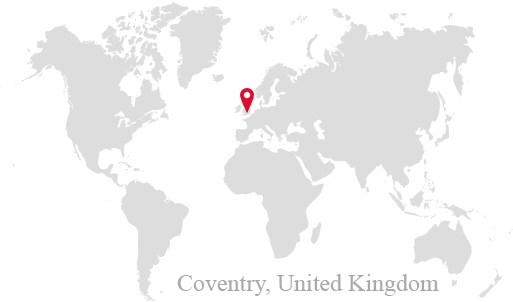Fighting for equality - the World of Women's Ski Jumping
Back in 1892, a founder of the International Olympic Committee, Pierre de Coubertin, gave the speech, and he said: “All sports must be treated on the basis of equality”. However, for the last couple of years, women had to fight for their rights in the world of ski jumping.
Many people may think that it is a typical sport discipline for men, and do not realise that female athletes also participate in ski jumping competitions. It is probably all because the history of men’s ski jumping is way longer than women’s. When it comes to male athletes, it all started back in 1808, when a Norwegian sportsman, Olaf Rye, jumped 9,5 meters and established the first world record! Almost 210 years later, in 2017, Stefan Kraft jumped 253,5 meters and now he is the official world record holder.
Another important date in men’s ski jumping history is 27 December 1979, where the first World Cup competition took place in an Italian city, Cortina d’Ampezzo. The first winner in history was an Austrian ski jumper, Toni Innauer, who jumped 88.5 meters in the first round and 88 meters in the final round and scored 250 points overall. So far, there were 42 World Cup seasons for men. A current World Cup Champion is a Norwegian athlete, Halvor Egner Granerud. Some other worth-mentioning ski jumpers are Gregor Schlierenzauer (from Austria), who won 53 World Cup competitions so far, and Janne Ahonen (from Finland) who took a place on the podium 108 times!
The first ski jumping competition for men during the Winter Olympics took place in France in 1928. The winner back then was Norwegian athlete Jacob Tullin Thams, who jumped 49 meters twice and took the gold medal. Nowadays, athletes compete on a small hill and a big hill. Current Olympic gold medallists from PyeongChang are Andreas Wellinger and Kamil Stoch.
The history of women’s ski jumping is a little shorter but it does not mean it is less interesting. The premiere World Cup competition for women took place in December 2011 in Lillehammer, Norway. American ski jumper Sarah Hendrickson took a first World Cup season victory. The current world record holder when it comes to women’s ski jump is Daniela Iraschko-Stolz, who jumped 200 meters in Bad Mitterndorf in 2003. She took a part in a men’s competition as a pre-jumper.
Daniela Irashko-Stolz (Photo: OMV Group)
The premiere female ski jumping competition at the Winter Olympics took place in Sochi in 2014. The first-ever Olympic gold medallist was German athlete – Carina Vogt. The current gold medallist from PyeongChang is Maren Lundby. When it comes to most titled female ski jumpers we have to mention two names. Sara Takanashi, who was World Cup winner four times and took 60 victories, and Maren Lundby, who won three World Cup seasons and scored the most points in a single season – 1909 points.
After reading about so many achievements of both female and male athletes, you may think that both men and women should have the equal right to ski jump. Unfortunately, the World of Women’s Ski Jumping is not so bright and cheerful. It all started back during this season, in November 2020, when the National Ski Federation announced that Ski Jumping World Cup competitions for both male and female athletes in Sapporo, Japan are cancelled because of the Coronavirus outbreak. After that, Women’s World Cup competitions in Oslo, Lillehammer, Trondheim (Norway), and Zao (Japan) were cancelled, as well. The Women’s Continental Cup and FIS Cup event calendars were also shortened, which started an open discussion about the uncertain future of women’s ski jumping.
The breaking point of this discussion was the announcement by the International Ski Federation saying that the Olympic Trials in Zhangjiakou, China were cancelled both for male and female athletes. A couple of days after that, FIS published another announcement saying that the Polish Ski Federation would organise the additional competitions for men on February 13-14, which meant there will be no additional competitions for women.
A winter sports journalist for Skoki Okiem Kobiet, Julia Wiraszka, comments: “It is undoubtedly a sad and unfair decision [the lack of competitions for women]. It would be great if the International Ski Federation could find someone who would be willing to organise competitions for both men and women to make women’s ski jumping more popular. It hurts to see that female athletes have to fight for their rights on their own”.
Not only journalists are concerned about the future of women’s ski jumping. Sarah Hendrickson, the first female World Cup winner, admits: “There need to be more events so that the women can have media and sponsorship chances. Without these, it is hard to make enough money to keep going. A financial situation is not the most important but it does determine how much you can train or travel (specifically from the US) and if you can make your dreams come true”
First World Cup winner, Sarah Hendrickson (Photo: RedBull)
Miss Hendrickson believes, there is a chance to make male and female ski jumping equal, but it will take some time: “The best way is for the men and woman to travel and compete together. The makes it financially smart for the organising committees to host them together. Once we will have more events, we can build up the media’s attention and a fan base. Of course, we can a couple mixed competitions so it is going in the right direction but not fast enough.”
The current Men’s World Cup leader, Halvor Egner Granerud, supports his female friends. In the interview with a local magazine, Granerud admitted that female and male ski jumpers should be treated equally and that he is not happy with the lack of competitions for women this season.
What is more, female ski jumpers are still waiting to be allowed to train on the flying hill and attend ski flying competitions. Will we ever get equal rights for men and women in the world of ski jumping? I am not so sure about that, but as Pierre de Coubertin once said, “All sports for all people” – and I think the International Ski Federation should think about this quote while discussing the future of women’s ski jumping.










0 komentarze